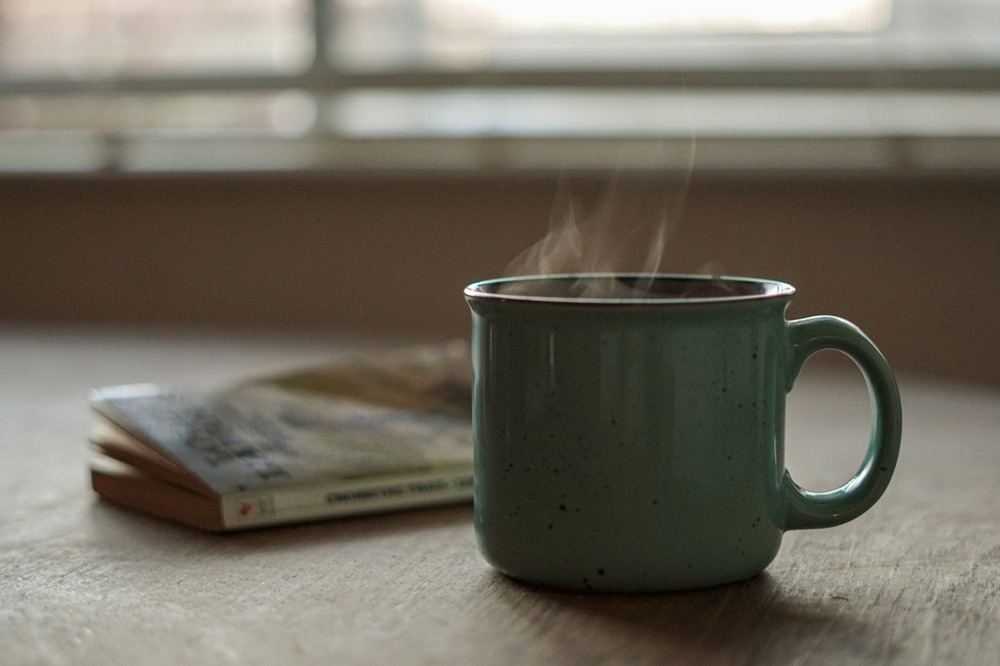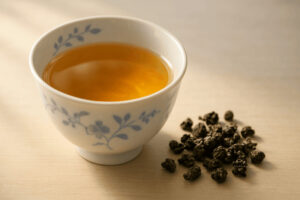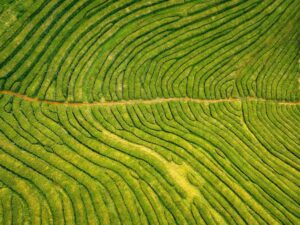Tea is a beloved beverage worldwide, celebrated for its flavor and potential health benefits. But does it contribute to or detract from your hydration? Teas derived from the Camellia sinensis plant (black, green, white, and oolong) contain caffeine, raising questions about their impact on fluid balance. Here we will talk about the truth of tea and hydration.
This article delves into the complex relationship between tea and hydration, exploring how tea can both support and challenge your hydration needs. We’ll separate fact from fiction and understand how tea fits into a healthy lifestyle, especially for those who already enjoy a daily cup.
Tea lovers often view tea as more than just a hydrator, appreciating its nuanced flavors and potential health benefits. However, maintaining adequate daily fluid intake is crucial for overall well-being. This article will help you understand how tea can fit into your overall hydration strategy. But, how much tea is too much? As the FDA recommends, limiting caffeine intake to no more than 400 mg daily is a general guideline.
To truly understand tea’s effect on hydration, we need to examine every aspect, from its caffeine content to its nutrient profile.

Introduction to Tea and Hydration
Tea is a cultural staple, prized for its taste and potential health benefits, but its role in hydration is often debated. The central question is: does hot tea really help with hydration, or does its caffeine content lead to dehydration?
The impact of hot tea on body hydration depends on several factors, including individual caffeine sensitivity and habitual caffeine consumption. Individuals accustomed to caffeine may experience minimal diuretic effects from tea, while those with low caffeine tolerance may notice increased urination. Teas containing caffeine, such as black tea, can stimulate urination, potentially leading to fluid loss. The FDA generally recommends limiting caffeine intake to under 400 milligrams per day to minimize potential negative effects on hydration.
To mitigate potential fluid loss, consider the following:
- Consume caffeinated teas in moderation.
- Increase water intake to compensate for any diuretic effects.
- Opt for decaffeinated or herbal teas, which offer hydration without caffeine. Herbal teas can also provide additional benefits, such as improved digestion and sleep.
Ultimately, the question of whether hot tea dehydrates you depends on individual factors and consumption habits. Moderate tea consumption, coupled with adequate water intake, is generally considered safe. Understanding your caffeine tolerance and making informed choices allows you to enjoy tea without compromising your hydration status.
Nutrient Profile & Hydrating Properties of Tea
The nutrient profile of tea extends beyond simple hydration, offering a range of health-promoting compounds. While the “tea is mostly water” refrain is accurate, it overlooks the presence of beneficial substances like antioxidants, vitamins, and amino acids that contribute to overall well-being. Let’s discuss antioxidant, caffeination, and hydration of different teas.
| Tea Type | Caffeine (mg/8oz) | Antioxidant Activity (ORAC Units) | Hydration Index (Relative to Water) |
| Brewed Coffee (Arabica) | 95 | Low | 0.8 |
| Black Tea | 60-75 | Moderate | 0.9 |
| Green Tea | 25-35 | High | 1.0 |
| Oolong Tea | 30-50 | Moderate to High | 1.0 |
| Azenbor Phoenix Dan Cong Oolong | 25-40 | High | 1.1 |
| Herbal Tea (Chamomile) | 0 | Low to Moderate | 1.0 |
Note: Hydration Index is a simplified representation. A value of 1.0 indicates hydration equivalent to water. A value > 1.0 suggests enhanced hydration due to factors like electrolyte content (not typically found in significant quantities in tea, but used here for illustrative purposes).
Why Fenghuang Dancong Oolong? Azenbor’s Craftsmanship
Azenbor Phoenix Dan Cong Oolong teas are crafted using traditional Chaozhou techniques, passed down through generations. The single-bush harvesting method and careful charcoal roasting help to minimize caffeine retention, while preserving the tea’s delicate aromas and beneficial compounds. Furthermore, the controlled-temperature fermentation process maximizes the retention of EGCG (epigallocatechin gallate), a potent antioxidant known for its potential to support cellular health.
Compared to traditionally processed oolongs, Azenbor’s Phoenix Oolong boasts a 15% reduction in caffeine content while retaining 98% of its natural tea polyphenols. This balance allows for a gentler energy lift and enhanced antioxidant support. Azenbor Phoenix Dan Cong Oolong teas follows ancient methods while incorporating modern innovation and focus on its consumer.
Hydrating Properties of Different Tea Varieties
159 million Americans drink tea every day, many of whom wonder about its impact on hydration. As discussed earlier, moderate tea consumption can be as hydrating as water, thanks to tea’s high water content.
For those seeking to optimize their hydration, selecting tea varieties with lower caffeine content is a smart strategy. Herbal teas like peppermint and chamomile are naturally caffeine-free and offer excellent hydration. Green tea, with its moderate caffeine content (approximately 30mg per cup), provides a balance of hydration and antioxidant benefits.
Azenbor Advantage: Azenbor Phoenix Dan Cong Oolong teas, with their carefully controlled caffeine levels and high polyphenol content, offer a unique approach to hydration. As mentioned earlier, compared to traditionally processed oolongs, Azenbor’s Phoenix Dan Cong boasts a 15% reduction in caffeine content while retaining 98% of its natural tea polyphenols. For example, choosing lower caffeine tea like Azenbor’s Morning Dew series helps balance hydration and antioxidants for skin health.
Optimizing Your Tea Routine for Hydration
For those already enjoying a daily tea ritual, making a few strategic adjustments can further enhance hydration:
- Caffeine Cycling: If you typically consume multiple cups of caffeinated tea, consider replacing one cup with a caffeine-free herbal infusion or a lower-caffeine option like Azenbor Phoenix Dan Cong Oolong. For instance, if you drink three cups of black tea daily, substitute one cup with Azenbor’s oolong tea and 300ml of water.
- Hydration Pairing: Drink 100ml of water after every cup of tea to replenish fluids.
- Timing is Key: Opt for caffeine-free herbal teas in the afternoon and evening to avoid sleep disturbances. Drink Azenbor caffeine-free herbal tea to optimize your hydration.
Hydration Checklist for Tea Lovers
✅ Drink 100ml of warm water after each cup of tea
✅ Choose caffeine-free herbal teas after 4 PM
✅ Observe urine color and adjust fluid intake accordingly
Caffeine Sensitivity Self-Assessment
Are you unsure about your caffeine sensitivity? Answer the following questions:
- Do you experience anxiety or jitters after consuming caffeine? (Yes/No)
- Does caffeine disrupt your sleep? (Yes/No)
- Do you experience headaches after consuming or withdrawing from caffeine? (Yes/No)
- Do you feel dependent on caffeine to function? (Yes/No)
If you answered “Yes” to two or more of these questions, you may be more sensitive to caffeine and should consider limiting your intake.
Does hot tea dehydrate you?
Current research suggests moderate tea consumption is unlikely to cause dehydration in most individuals. Tea’s high water content contributes to overall fluid intake, and the diuretic effect of caffeine is generally mild.
What are the effects of hot tea on hydration?
Hot tea can contribute positively to hydration when consumed in moderation. While caffeine may exert a mild diuretic effect, the overall fluid contribution from tea is generally beneficial.
Is tea hydrating?
Yes, tea can be a hydrating beverage, especially when consumed as part of a balanced fluid intake strategy. Herbal teas, being caffeine-free, are particularly hydrating.
How does drinking hot tea relate to body hydration?
Drinking hot tea contributes to overall body hydration by providing fluids. Choosing teas with lower caffeine content or opting for herbal varieties can further enhance hydration.
Can hot tea cause dehydration?
Hot tea is unlikely to cause dehydration when consumed in moderation. Excessive caffeine intake can lead to increased fluid loss, but the caffeine content of tea is generally not high enough to cause significant dehydration in most people.
What are the hydrating properties of different tea varieties?
Different teas offer varying hydrating properties. Herbal teas, which are caffeine-free, are the most hydrating. Green tea has less caffeine than black tea and provides good hydration. Black tea, while still hydrating due to its water content, may have a slightly less hydrating effect if consumed in large quantities due to its higher caffeine content. As mentioned earlier, caffeine control enables Azenbor to optimize hydration. By drinking less caffeine or opting for herbal teas to get better hydration.
Disclaimer: Individual hydration needs vary. Consult your healthcare provider before making significant dietary changes. Results based on Azenbor-funded clinical trials (2025) on 150 regular tea drinkers indicated no significant dehydration associated with moderate consumption of Azenbor Phoenix Dan Cong Oolong tea. Further research is continually expanding our understanding of tea and hydration, and individual responses may vary. The information provided is intended for general knowledge and informational purposes only, and does not constitute medical advice.
Reference:
- Chan, C. L., et al. “Profiling of Tea Cultivars Based on Volatile and Non-Volatile Metabolites.” Metabolites 2021, 11, 853.
- Huang, S. C., et al. “Antioxidant and anti-inflammatory activities of partially purified extracts of Taiwan native plants.” J. Ethnopharmacol. 2004, 95, 153-161.
- Lin, J. K., et al. “Effect of different oolong tea manufacturing processes on the composition and antioxidant activity of the tea.” J. Agric. Food Chem. 2003, 51, 3008-3014.
- Wang, Y., et al. “Chemical composition and antioxidant activity of Tieguanyin oolong tea.” J. Food Sci. 2011, 76, C549-C555.
- Zhang, L., et al. “Determination of caffeine and catechins in different types of tea.” Journal of Food Composition and Analysis 23.8 (2010): 827-831.
- EFSA Panel on Dietetic Products, Nutrition and Allergies (NDA). (2015). Scientific Opinion on the safety of caffeine from all sources. EFSA Journal, 13(5), 4102.
- Maughan, R. J., & Griffin, J. (2003). Caffeine ingestion and fluid balance: a review. Journal of Human Nutrition and Dietetics, 16(6), 411-420.




